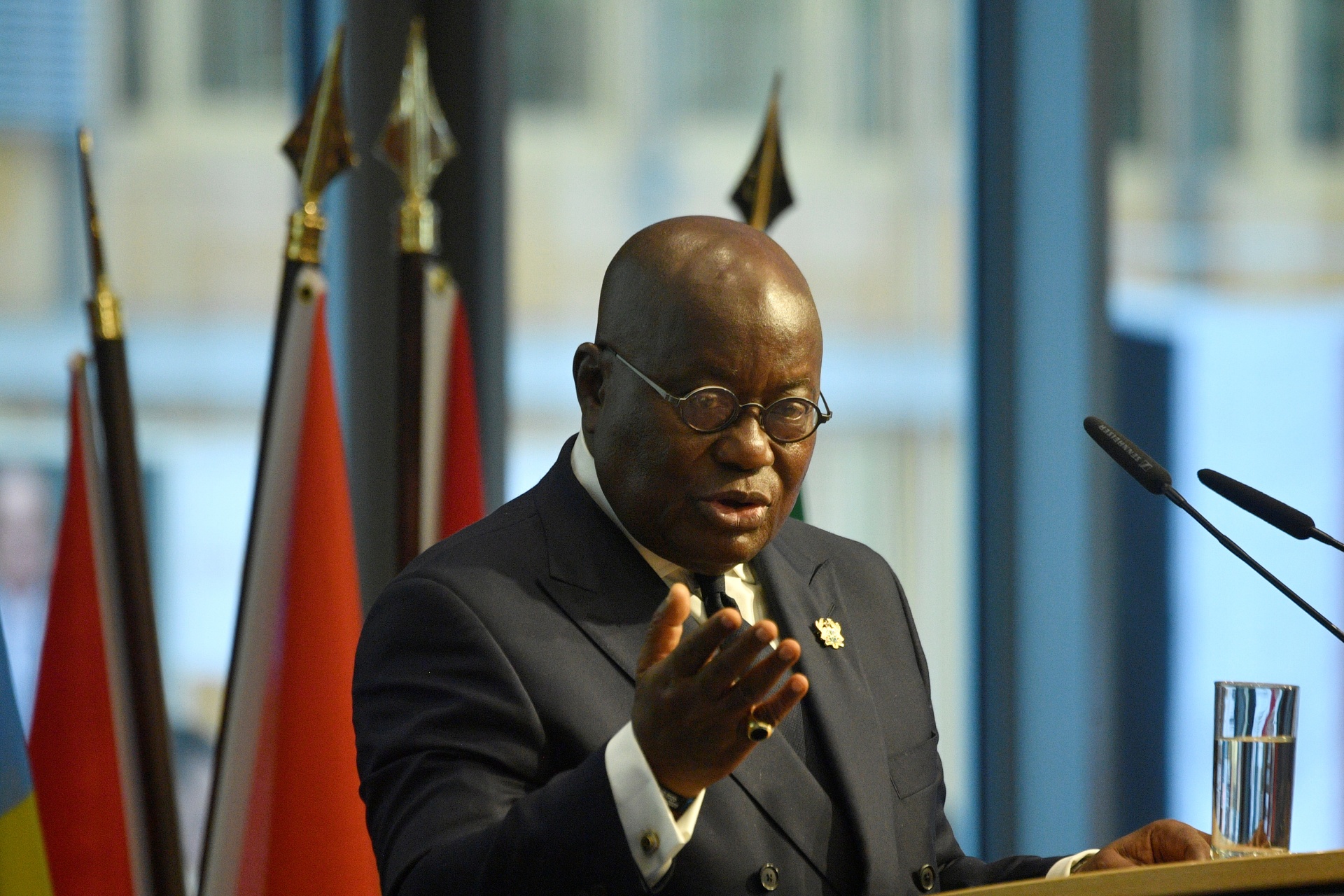Ghana Looks to Long Relationship With African Americans for Investment

By experts and staff
- Published
By
- Guest Blogger for John Campbell
Tareian King is an intern with CFR’s Africa Program and a student at the Elisabeth Haub School of Law at Pace University. She is also the founder of Nolafrique, an e-commerce platform that enables artisans in African villages to have global exposure and opportunities for scale up.
The year 2019 marked four hundred years since the first enslaved people from West Africa arrived in the United States. The president of Ghana, Nana Akufo-Addo, declared the anniversary the Year of Return. It celebrated the resilience of African Americans and encouraged them to return to Africa, visit, apply for Ghanaian citizenship, and take advantage of investment opportunities. Festivities included naming and healing ceremonies, trips to heritage sites, musical performances, lectures, investment forums, and relocation conferences. According to the minister of tourism, the initiative generated $1.9 billion in tourism revenue. Although all members of the African diaspora—both recent immigrants and descendants of the transatlantic slave trade living predominantly in the Americas—were included, the primary focus was on African Americans.
The connection between African Americans and Ghana is not new. In 1957, Ghana became an inspiration for African Americans when it became the first sub-Saharan African country to win independence from a colonial power. Ghana’s independence also gave momentum to the Pan African movement, which, among other things, encourages solidarity among all African diaspora ethnic groups to obtain political and economic power. Martin Luther King traveled to Ghana to celebrate its defeat of colonization, and Malcolm X and Maya Angelou worked in Ghana during the presidency of Kwame Nkrumah. W.E.B. Dubois died in Ghana as a Ghanaian national and today, there is the W.E.B. Du Bois Memorial Center for Pan-African Culture in Accra. Marcus Garvey, the famed Jamaican Pan-Africanist, advocated for the return of African Americans to Africa. He founded the Black Star Line to help blacks return to Africa, which is the origin of the black star on the Ghanaian flag and for name of the national football team.
Ghana’s Year of Return initiative sought to not only carry on this relationship, but expand it. The initiative is a part of a larger strategy to make Ghana less reliant on aid by drawing on, among other things, business and investment from African American. The goal of President Akufo-Addo’s broader development agenda, called “Ghana Beyond Aid,” is to achieve self-reliant growth and to break out of the mindset of dependency. According to Akufo-Addo, Ghana does not need foreign aid; instead, it needs the African diaspora to return, build, and invest. The United Nations Sustainable Development Partnership (UNSDP) adopted his agenda as part of its plan for African development.
Ghana is well-positioned to become less reliant on aid. In 2017, Ghana received $1.25 billion in official development assistance (ODA). This was only 2.1 percent of Ghana’s GDP of $59 billion in 2017. (ODA is government aid that promotes and specifically targets the economic development and welfare of developing countries; it excludes military and anti-terrorism activities.)
Moreover, Ghana already attracts substantial investments from abroad. For example, the value of French foreign direct investments in Ghana in 2017 was $10.5 million for a total stock amounting to $1.7 billion, and China will have begun work on $2 billion worth of infrastructure construction in Ghana. But, African Americans will have programs specifically created for them. As part of “Ghana Beyond Aid,” the president announced the launch of “Beyond the Return: The Diaspora Dividend,” a multi-million dollar fund to attract investment from members of the African diaspora. It will consist of special diaspora investment programs, Sankofa Savings accounts, and diaspora housing schemes. The ministry of finance stated that the African diaspora will be able to invest in ”tourism infrastructure, agriculture value addition, real estate, music, culture, and retirement homes.”
In Ghana, African Americans have no language barrier and the country has a transparent legal system and a business environment that makes it a secure and reliable destination for investors. Ghana is also the only country to provide people of African ancestry the legal right to stay in the country indefinitely through its Right to Abode law. During the Year of Return, Ghana waived a number of bureaucratic hurdles and granted one hundred African Americans citizenship based on their African ancestry alone.
At a memorial ceremony for George Floyd, Ghana’s minister of tourism, Barbara Oteng-Gyasi, told African Americans to “come home, build a life in Ghana.” Ghana’s courtship of African Americans has grown from one based mostly on solidarity in the face of black oppression to one also based on business and investment. Ghana hopes to attract investors with an interest in its development, while some African Americans can profit personally from the relationship. With available business opportunities, a welcoming environment, and an opportunity to leave behind racism and police brutality, some African Americans may accept Ghana’s invitation.